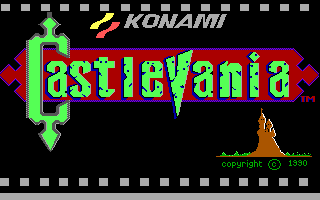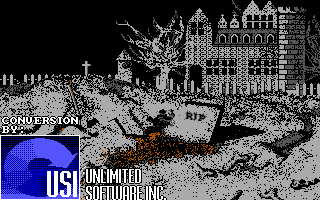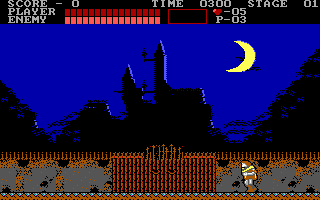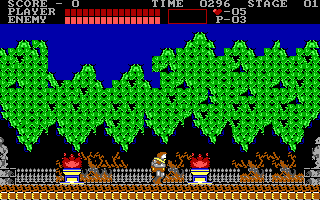Castlevania for PC DOS
PC DOSGame controls in browser
Show Controller & SystemClick on play DOS game now button first to load the game and run it inside the DOSBox emulator.
Castlevania
Online version of Castlevania for PC DOS. Castlevania (Akumajō Dracula) is a side-scrolling platform game developed and published by Konami, originally released for the Family Computer Disk System in 1986. It is the first game in Konami's Castlevania video game series. Castlevania uses platform gameplay and is divided into six blocks of three stages each, for a total of 18 stages. Players control Simon Belmont, who has entered Castlevania to defeat Count Dracula. Simon can move, jump, crouch, climb stairs, and use a magic whip as his primary combat weapon. The player fights a boss character at the end of each block, and must win the battle and pick up an orb before time runs out in order to advance. The ultimate goal is to defeat Dracula at the end of Stage 18, triggering the collapse of his castle and allowing the player to restart the game at increased difficulty...
Game details
Other platforms online 1
You can play Castlevania online also in a versions for77%
rating (2 users voted)
Covers - Box Art
IBM PC with MS-DOS
Online emulated version of Castlevania was originally developed for the IBM PC and compatible computers,
with MS DOS - Microsoft Disk Operating System. It is an OS for x86-based personal computers mostly developed by Microsoft and released in 1981 as PC DOS 1.0.
MS-DOS was targeted at Intel 8086 processors running on computer hardware using floppy disks to store and access not only the operating system, but application software and user data as well.
Progressive version releases delivered support for other mass storage media in ever greater sizes and formats, along with added feature support for newer processors
and rapidly evolving computer architectures. Ultimately, it was the key product in Microsoft's development from a programming language company to a diverse software
development firm, providing the company with essential revenue and marketing resources. It was also the underlying basic operating system on which early versions of Windows ran as a GUI.







